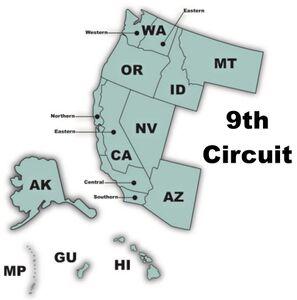Table of Contents
- 9th Circuit Court Issues Stay on California Ammo Background Check Requirement
- Legal Arguments and Judicial Reasoning Behind the Court’s Decision
- Implications for California Gun Control Policies and Enforcement
- Recommendations for Lawmakers and Stakeholders Moving Forward
- To Conclude
9th Circuit Court Issues Stay on California Ammo Background Check Requirement
In a significant legal development, the 9th Circuit Court has issued a stay on California’s recently implemented ammunition background check requirement. This move effectively halts enforcement of the law while appeals continue, reflecting ongoing judicial scrutiny over state-level gun control measures. The court’s decision highlights concerns related to constitutional rights and the procedural aspects of such regulatory mandates.
Key points surrounding the stay include:
- The stay prevents retailers from requiring background checks for ammo purchases until the court reaches a definitive ruling.
- Legal arguments focus on potential conflicts with Second Amendment protections and the extent of state authority.
- The ruling underscores the complex balance between public safety interests and individual rights in firearm regulations.
Legal Arguments and Judicial Reasoning Behind the Court’s Decision
In its analysis, the 9th Circuit court emphasized constitutional protections under the Second Amendment, asserting that the California law imposing background checks on ammunition purchases presented an undue burden on the fundamental right to bear arms. The panel scrutinized the law’s demand for universal background checks on bullets, arguing that such measures extended beyond the regulatory scope intended by earlier precedents. Judges pointed out that the statute lacked sufficient tailoring to justify infringing on law-abiding citizens’ access to ammunition, especially given the absence of direct evidence linking unchecked ammo sales to increased criminal activity.
The judicial reasoning further highlighted concerns about potential administrative overreach and privacy implications, noting that mandatory background checks for ammo purchases could lead to a de facto registry of gun owners and their buying patterns. Citing prior landmark cases within the circuit, the court reaffirmed the necessity of balancing public safety interests with individual liberties, ultimately finding that California’s approach did not meet this equitable standard. Key considerations included:
- Lack of clear evidence that the law effectively curbs ammunition-related crimes.
- Disproportionate impact on lawful gun owners versus the minimal anticipated benefit.
- Potential infringement on privacy rights through excessive data collection.
Implications for California Gun Control Policies and Enforcement
The recent ruling by the 9th Circuit Court presents significant challenges to California’s efforts to regulate ammunition purchases through background checks. This decision not only stalls the immediate implementation of the law but also raises questions about the judiciary’s stance on expanding checks beyond firearms to include ammunition. Lawmakers and enforcement agencies must now reassess the legal framework surrounding background screenings, potentially prompting revisions to ensure compliance with constitutional standards while maintaining public safety objectives.
Looking ahead, policymakers might consider alternative strategies to address gun violence without relying solely on ammunition background checks. These could include:
- Enhanced collaboration between federal and state agencies for comprehensive data sharing.
- Strengthening existing firearm purchasing regulations to close loopholes.
- Community-based outreach programs focused on gun safety education and violence prevention.
Enforcement authorities, meanwhile, will need clear guidance on how to navigate the ambiguity created by this ruling to avoid overstepping legal boundaries. The balance between constitutional rights and public safety remains delicate, demanding tailored policies that withstand judicial scrutiny while aiming to reduce gun-related harms within the state.
Recommendations for Lawmakers and Stakeholders Moving Forward
In the wake of the 9th Circuit’s decision, lawmakers and stakeholders should prioritize a thorough review of existing firearm regulation frameworks to ensure that public safety goals align with constitutional protections. It is imperative to pursue transparent dialogue among all parties, including legal experts, advocacy groups, and community leaders, to develop policies that are both effective and legally sustainable. Emphasis should be placed on crafting legislation that withstands judicial scrutiny by incorporating clear language and robust evidence supporting its necessity.
Moving forward, efforts must center on innovative strategies that enhance responsible ammunition sales without infringing on lawful rights. Key recommendations include:
- Investing in technological solutions that streamline and secure background checks while protecting consumer privacy.
- Strengthening cross-agency collaboration to monitor compliance and enforce existing laws effectively.
- Engaging in public education campaigns focused on safe storage and handling of ammunition.
- Conducting comprehensive impact assessments before proposing new regulations to anticipate potential legal challenges.
To Conclude
The 9th Circuit’s decision to block California’s ammunition background check law marks a significant development in the ongoing legal debates surrounding gun control measures. As both sides prepare for further legal challenges, this ruling underscores the complex balance between public safety concerns and Second Amendment rights. Stakeholders and policymakers will be closely watching subsequent proceedings and potential appeals that could shape the future landscape of ammunition regulation in California and beyond.Check Our Other Blogs
- StunGun – Your Trusted Source for Stun Guns, Laws, and Self-Defense Tips
- PepperSprayLaws – Your Trusted Resource for Pepper Spray Information
- StunGunLaws – Your Trusted Guide to Stun Gun Legality and Safety





